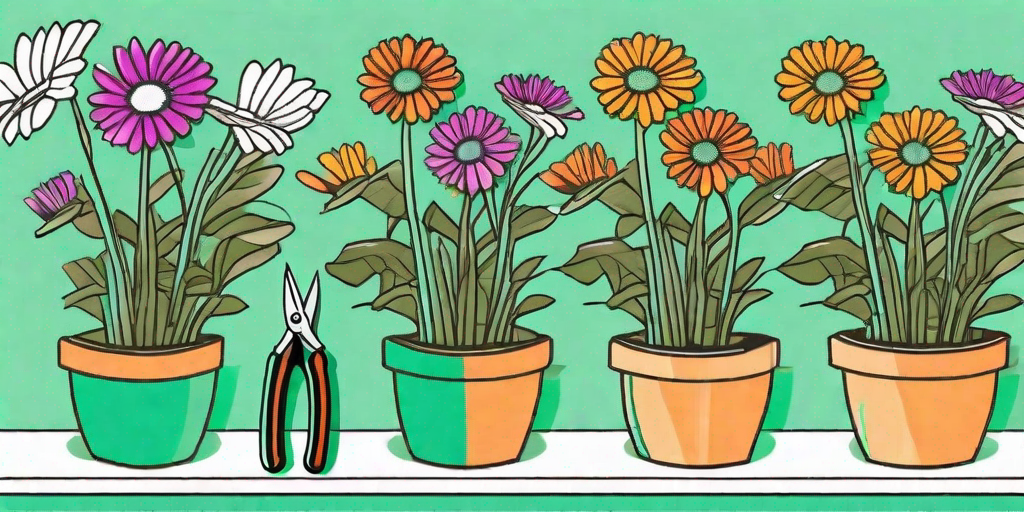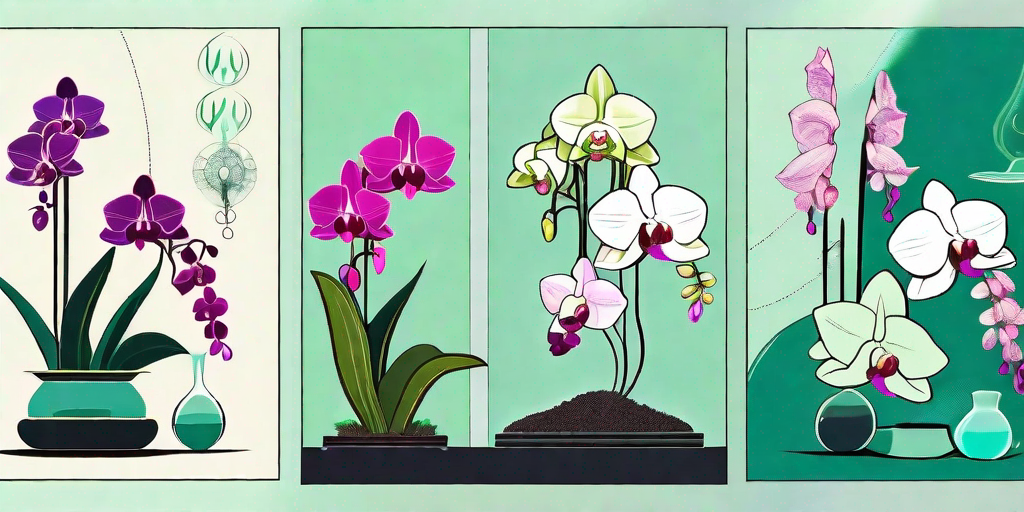
Orchids, the divas of the plant world, demand attention, care, and most importantly, perfect timing. If you've been blessed with the responsibility of caring for these capricious blooms, you're in for a wild ride. But fear not, dear reader, for this guide will equip you with all the knowledge you need to keep your orchids blooming and your sanity intact.
The Importance of Timing
Just like a perfectly timed joke can save an awkward dinner party, the right timing can save your orchids from a premature demise. Orchids are not your typical houseplants. They have a unique life cycle and require specific care at different stages. Ignoring these stages is like ignoring the instructions for assembling IKEA furniture - you're bound to end up with a mess.
Orchids, like many of us, are creatures of habit. They thrive on routine. A consistent fertilizing schedule that aligns with their growth cycle can make the difference between a thriving orchid and a wilting one. So, let's dive into the world of orchid timing, shall we?
Understanding the Orchid Life Cycle
The Vegetative Stage
During the vegetative stage, your orchid is focused on growth. It's like a teenager, constantly eating and growing, with no thought of anything else. This is the time when your orchid needs a high-nitrogen fertilizer to support its rapid growth.
But remember, just like teenagers, orchids can be sensitive. Over-fertilizing can lead to root burn. So, while it's important to provide plenty of nutrients, moderation is key.
The Blooming Stage
Once your orchid has matured, it's ready to put on a show. This is the blooming stage, where your orchid produces those stunning flowers that make all the effort worthwhile. During this stage, your orchid needs a high-phosphorus fertilizer to support flower production.
Again, moderation is key. Too much fertilizer can lead to a condition called fertilizer burn, which can damage the roots and leaves. It's like getting a sunburn from spending too much time at the beach - painful and entirely preventable.
How to Fertilize Your Orchids
Choosing the Right Fertilizer
Choosing the right fertilizer for your orchid is like choosing the right wine for your dinner - it can enhance or ruin the experience. Orchids need a balanced fertilizer that contains nitrogen, phosphorus, and potassium, often referred to as N-P-K. You can find the N-P-K ratio on the fertilizer label. For the vegetative stage, choose a fertilizer with a higher first number (more nitrogen). For the blooming stage, choose a fertilizer with a higher second number (more phosphorus).
And remember, just like you wouldn't serve box wine at a fancy dinner party, don't skimp on the quality of your fertilizer. Your orchids will thank you.
Applying the Fertilizer
Applying fertilizer to your orchids is not as simple as dumping it on and hoping for the best. It's more like making a cup of tea - it requires patience and precision. First, you'll need to dilute the fertilizer in water. The exact amount will depend on the strength of your fertilizer, so be sure to read the instructions carefully.
Once you've prepared your fertilizer solution, it's time to apply it. Pour the solution over the roots, making sure to avoid the leaves. If the solution gets on the leaves, rinse them off immediately to prevent damage. And remember, it's better to under-fertilize than over-fertilize. Your orchids, like your guests, will appreciate your restraint.
Frequently Asked Questions
How often should I fertilize my orchids?
During the vegetative stage, fertilize your orchids once a week. During the blooming stage, fertilize them once every two weeks. And remember, timing is everything. Don't fertilize your orchids when they're dormant or stressed, as this can do more harm than good.
What type of fertilizer should I use?
Use a balanced fertilizer that contains nitrogen, phosphorus, and potassium. The exact N-P-K ratio will depend on the stage of your orchid. For the vegetative stage, choose a fertilizer with a higher first number. For the blooming stage, choose a fertilizer with a higher second number.
Can I use regular houseplant fertilizer for my orchids?
While you can use regular houseplant fertilizer for your orchids, it's not ideal. Orchids have specific nutrient requirements that are best met by a specialized orchid fertilizer. It's like serving fast food at a gourmet dinner party - technically, it's food, but it's not going to impress anyone.
Conclusion
Caring for orchids can be a challenge, but with the right knowledge and a little patience, it can also be incredibly rewarding. Remember, timing is everything when it comes to fertilizing your orchids. So, keep an eye on their growth cycle, choose the right fertilizer, and apply it with care. Your orchids will reward you with stunning blooms that will make all the effort worthwhile.
So, there you have it, dear reader. You are now equipped with the knowledge to keep your orchids blooming and your sanity intact. Happy fertilizing!















